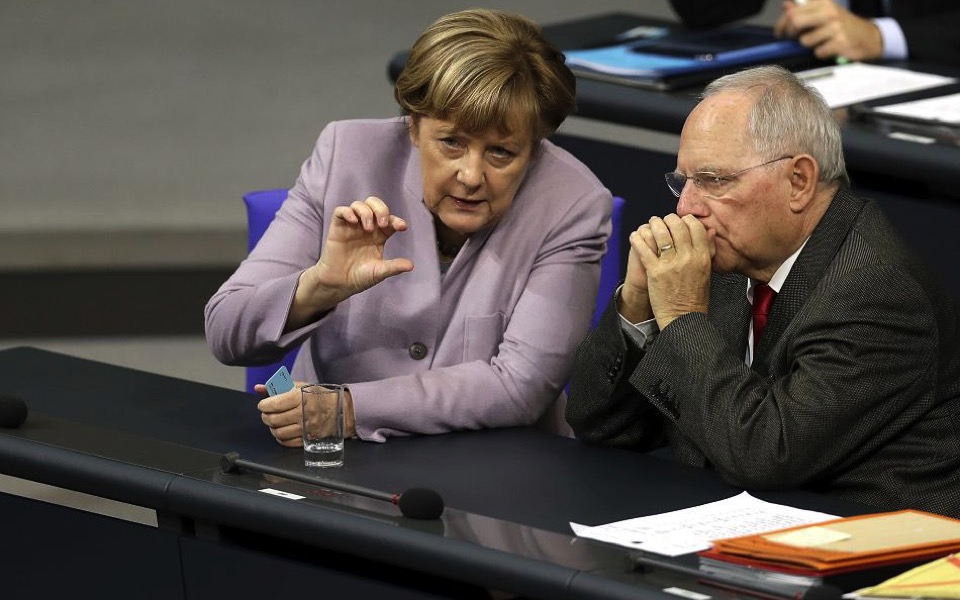Decision time

A veteran German politician recently said that “it’s high time the chancellor made up her mind about Greece.” We certainly are at a crossroads, and Angela Merkel’s decision will weigh heavily on developments surrounding Greece.
A key issue is whether the German leader will bypass her stubborn finance minister, Wolfgang Schaeuble, and give the green light for a swift deal on medium-term debt relief and – obviously – smaller budget surpluses much earlier than 2025. Without such a deal, the holy grail of quantitative easing (QE) will likely remain elusive, while Greek Prime Minister Alexis Tsipras will have very few incentives to put his signature on paper.
No one can predict to what extent Merkel will be able to get around Schaeuble and his ministry, which insist that any discussion on Greek debt relief must take place at the close of the bailout program in 2018.
Officials monitoring the Greek program in Brussels and Frankfurt say Merkel is keeping her hands firmly on the wheel. She wants to avoid a repeat of the 2015 crisis for she believes that such an eventuality would strengthen fringe parties in Germany and other European countries.
Merkel is said to argue that Tsipras gets everything through without much resistance, while adding that opposition leader Kyriakos Mitsotakis would be better off taking over at a time when he would not have to juggle with too many hot potatoes. For the above reasons, she claims that Greece could do with some carrots so as to wrap up the bailout review by May.
It’s a minefield out there, and no safe prediction can be made. Analysts reckon that Merkel needs Schaeuble’s political backing in what is a tough election campaign. Meanwhile, her minister’s partisan loyalty suggests he would never question her in public. “There are still many episodes ahead,” said a European official with knowledge of the matter. “It could be months before we see the outcome of this tug of war.”
All that presupposes breaking the deadlock of the ongoing negotiations and that the two sides will find a formula that will meet the demands of the International Monetary Fund without inducing SYRIZA’s political suicide. It’s by no means an easy task.
There is no doubt that Greece would benefit from an agreement foreseeing smaller budget surpluses. The big problem, as usual, is that foreign officials rarely insist on imposing the structural reforms that the country sorely needs; meanwhile, Greek politicians are keen to ease fiscal discipline so as to have an easier time with their political appointments.





